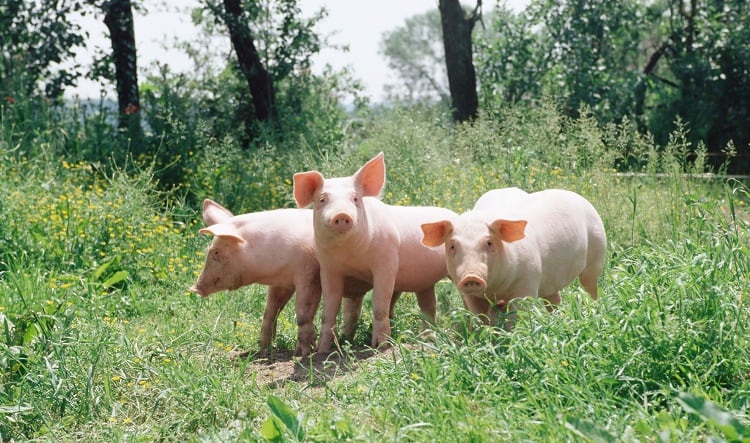The Association of Independent Meat Suppliers’ (AIMS’) proposals covered the length and breadth of concerns from the meat industry, from overhauling veterinary control schemes to protecting British consumer from low-standard imports.
Jason Aldiss, spokesman for AIMS, said: “Our mission is to advocate for policies that support the meat industry, promote food safety, and protect British consumers and producers from day one of the new Government and what we believe is that all 10 key tasks be quickly delivered at next to no cost to tax-payers, but most importantly to the benefit of the processing industry and trade.
“It is our intention that whoever forms the next government we will be promoting our 10 key tasks with ministers at Defra, DBT, DfE, The Home Office and regulators such as the Food Standards Agency in order that our member’s views are heard and acted upon.”
1. Streamline regulatory oversight with a farm-to-fork body
AIMS proposed the creation of a single, cohesive regulatory body that oversees the entire food chain from farm-to-fork. This would replace the current ‘fragmented’ system, consolidating regulatory oversight to ensure a more streamlined process, better communication and higher food standards.
2. Overhaul outdated veterinary control regimes
AIMS proposed and strongly recommended a complete overhaul to modernise the control regime, which is based on science that is more than 120 years old. The new controls need to be relevant and effective for contemporary food safety challenges, particularly those posed by modern supply chains and processing technologies.
3. Reduce bureaucracy and regulatory burdens
The group proposed the removal of unnecessary bureaucracy and regulatory burdens on the meat industry, which it believed would help improve efficiency and assurance. It would also allow businesses to thrive without being weighed down by outdated and redundant regulations.
4. Negotiate a veterinary agreement with the EU
The establishment of a veterinary agreement with the EU to reduce costs and waste, as well as improve regulatory assurance was furth of the list of AIMS’ proposals. It claimed such an agreement would facilitate smoother trade, lower the current excessive cost of compliance for exporters and ensure that the high standards of British meat are recognised and accepted in European markets.
5. Harness technology across the food chain
Proposals were made for the use of advanced technologies throughout the food chain to minimise waste, enhance regulatory oversight and reduce costs. This would include blockchain for traceability, automated quality control and data analytics for better decision-making.
6. Modernise meat industry controls with qualified staff
Advances in the meat processing industry can only be achieved through the support of appropriately qualified staff – for every piece of new tech or system, someone needs to be trained up to use it. AIMS called for the employment of qualified professionals with experience in delivering official controls in abattoirs, rather than relying on underqualified veterinarians.
7.Support the UK’s agri-livestock sector
The UK’s agri-livestock and meat sector is a crucial contributor to the rural and national economy, providing jobs and high-quality food. AIMS called for policies that support this sector, ensuring it remains competitive and sustainable in the face of global challenges.
9. Protect British consumers from low-standard imports
AIMS doubled down on its commitment to protecting British consumers from imports that do not meet the UK’s high welfare and hygiene standards. To this end, it advocated for stringent import regulations that prevent lower-quality products from undermining the integrity of the British food supply.
9. Simplify export promotion and eliminate redundant quangos
AIMS proposed the establishment of a single, effective commission to promote British exports of food of animal origin, streamlining efforts to boost international trade and open new markets – a function that used to be covered by The British Agricultural Export Council.
10. Invest in education and training for the agri-livestock sector
The final proposal from the group was for substantial investment in the educational sector to promote apprenticeships and training programmes to prepare British workers for careers in the agri-livestock sector.
Meanwhile, as the UK general election looms, Food Manufacture pulls together the core asks of six different federations representing the food and beverage sector.





